Long Island could see its coldest Christmas in decades
A powerful storm late this week will drag arctic air into the eastern US for Christmas.
Share:
More Stories
1:34

Guide to free Fourth of July firework shows on Long Island
46m ago2:17

STORM WATCH: Hot, humid and scattered afternoon and evening thunderstorms for Long Island
1h ago1:31

Made on Long Island: American Made Grills in Bohemia
1h ago0:52

Fire chief: 5 people injured in fiery Plainview crash
2h ago2:06

Memorial Sloan Kettering, UnitedHealthcare miss midnight deadline as tens of thousands lose access to in-network cancer treatment
2h ago2:07

Tens of thousands of UnitedHealthcare cancer patients could lose treatment access by midnight
9h ago1:34

Guide to free Fourth of July firework shows on Long Island
46m ago2:17

STORM WATCH: Hot, humid and scattered afternoon and evening thunderstorms for Long Island
1h ago1:31

Made on Long Island: American Made Grills in Bohemia
1h ago0:52

Fire chief: 5 people injured in fiery Plainview crash
2h ago2:06

Memorial Sloan Kettering, UnitedHealthcare miss midnight deadline as tens of thousands lose access to in-network cancer treatment
2h ago2:07

Tens of thousands of UnitedHealthcare cancer patients could lose treatment access by midnight
9h agoA powerful storm late this week will drag arctic air into the eastern US for Christmas. Long Island could see its coldest Christmas since the 1990s and the cold in the south could break Christmas records.
The details are coming together on a significant storm that will drag wind and rain across the east coast and snow for the interior later this week. However, it's very quiet to start the week off.
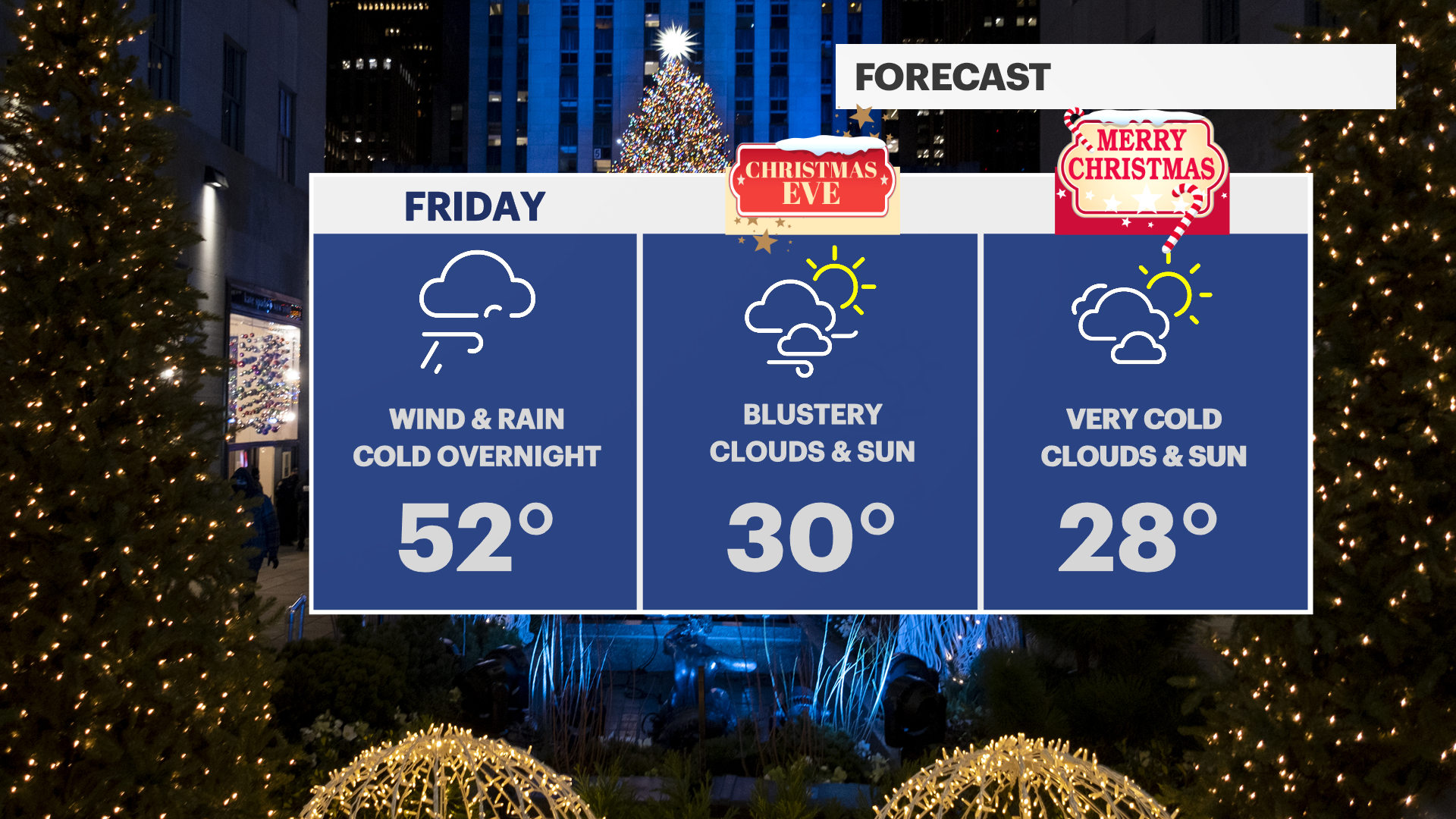
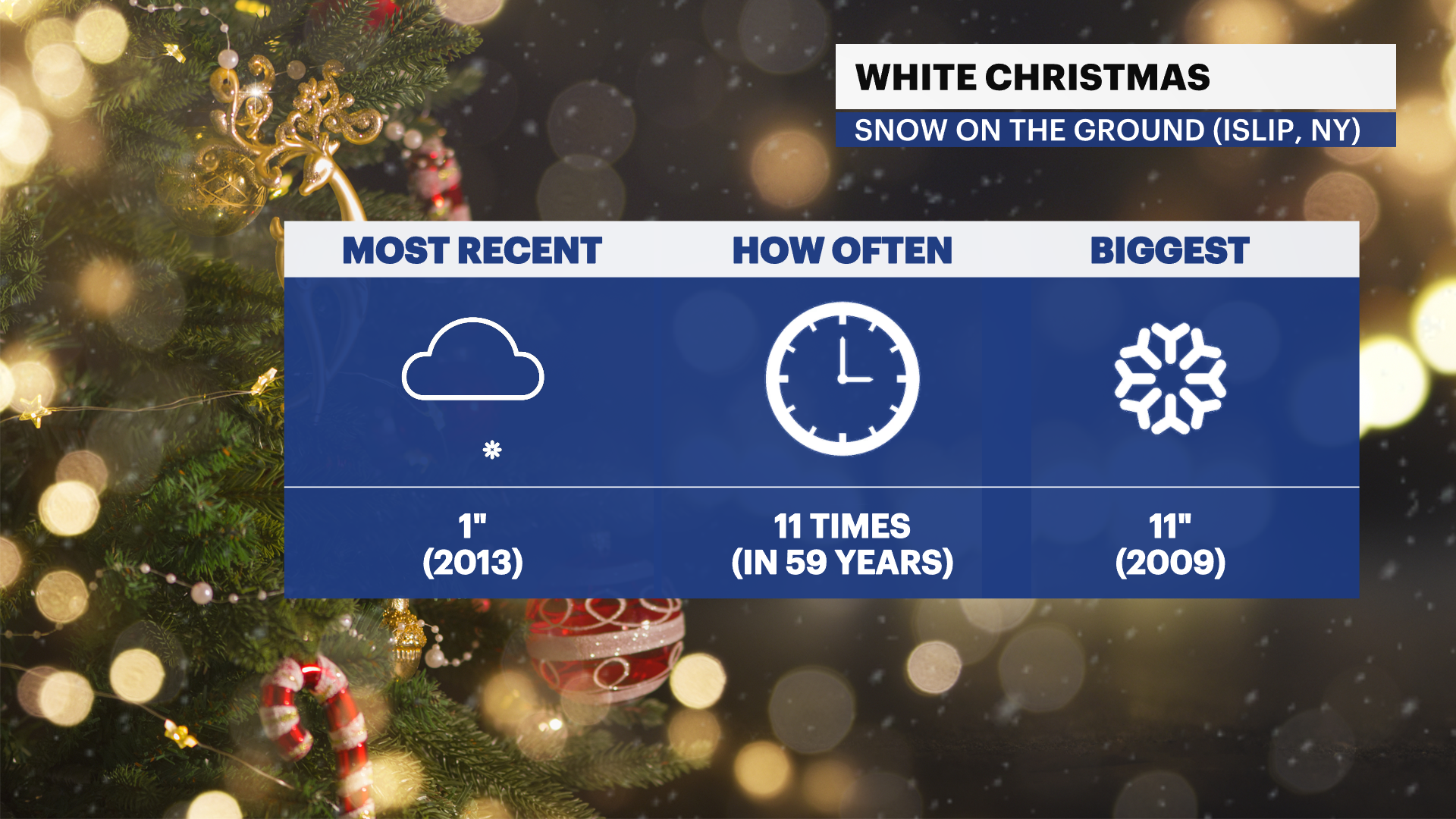
The chance for precipitation is low on Long Island through Wednesday. Temperatures this time of the year are in the mid-40s on average, but highs will be in the upper-30s instead over the next few days.
Travel troubles are expected to begin on Thursday. Rain showers will move in during the afternoon on Long Island with windy weather expected too.
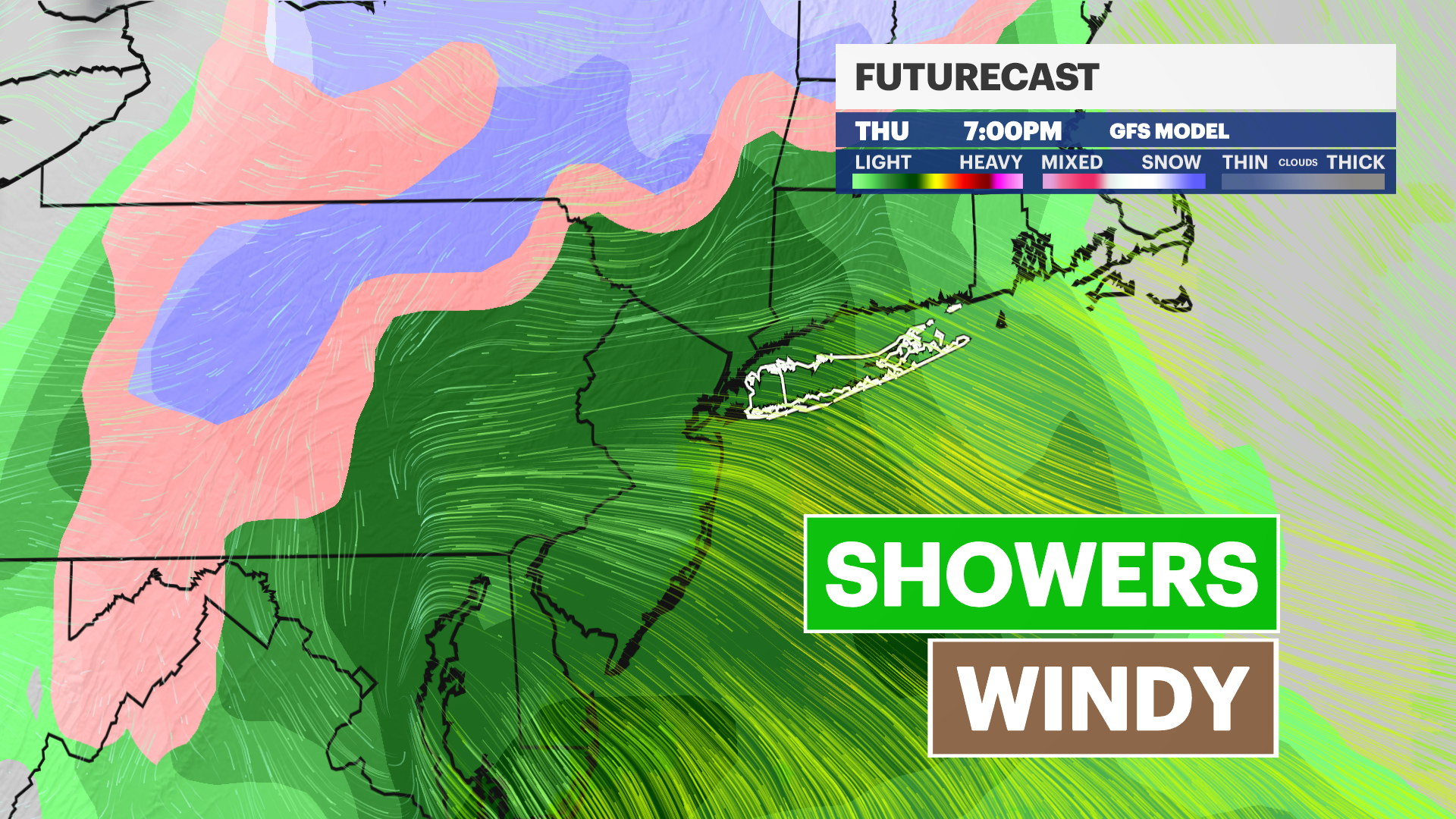
The latest model trends anticipate temperatures will be warm enough for an all-rain event on Thursday and Friday on Long Island, but heavy rain is possible and snow could be an issue for interior parts of the northeast from the upper-south into central Pennsylvania and upstate New York.
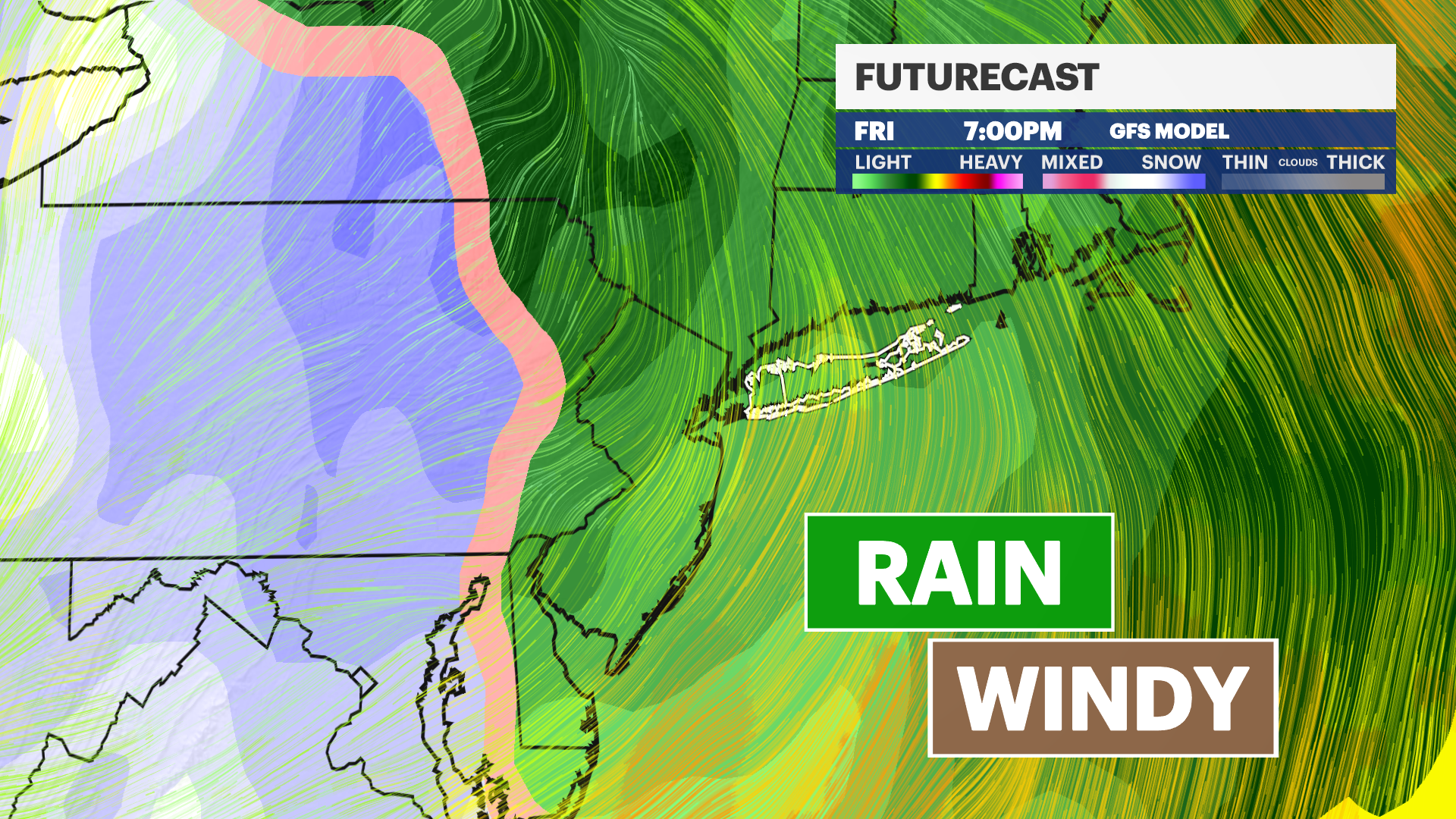
Snow showers could sneak in across the Island on Friday night or Christmas Eve as cold air moves in behind the system. Stay tuned for updates on this storm system later this week.
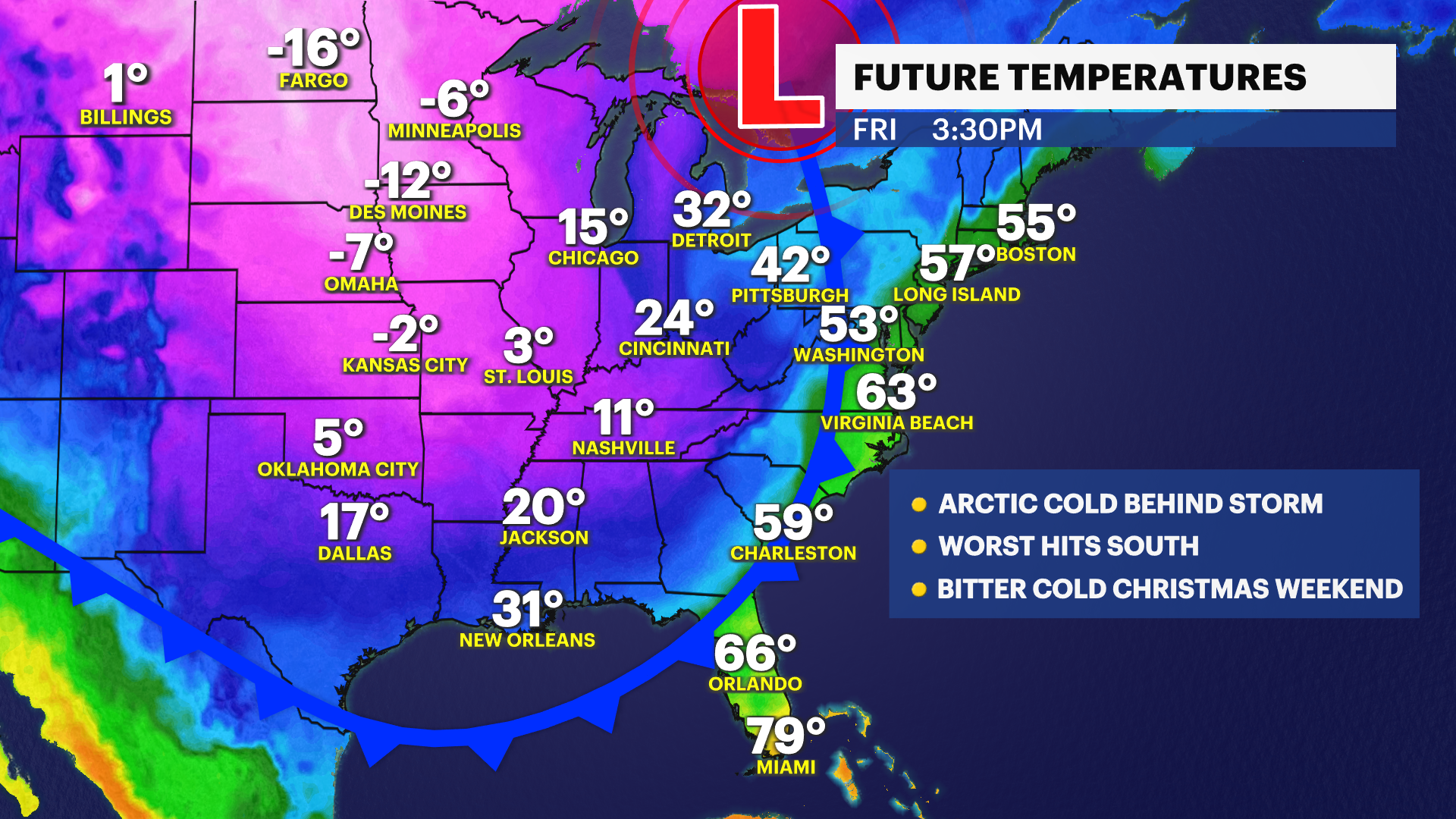
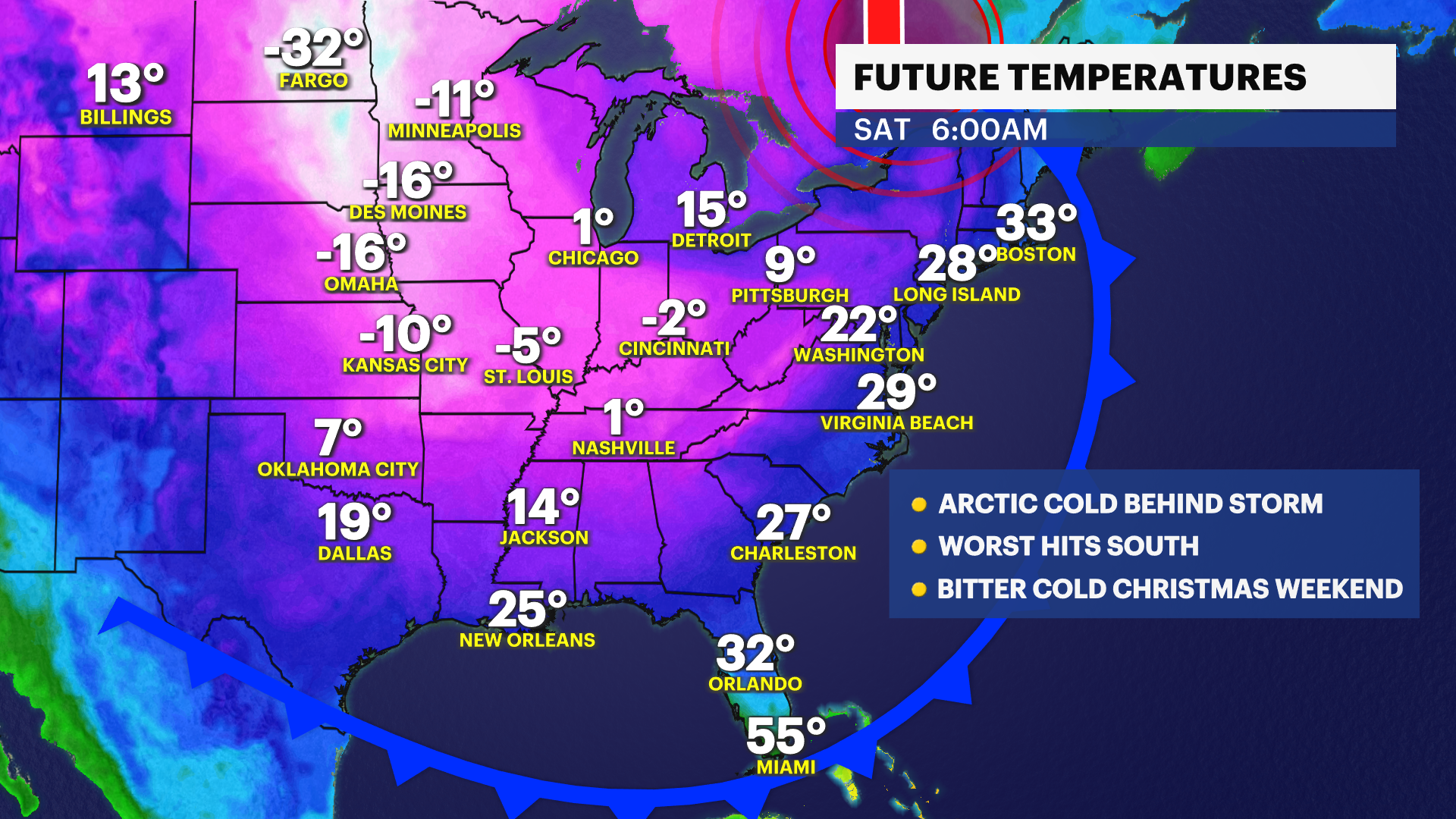
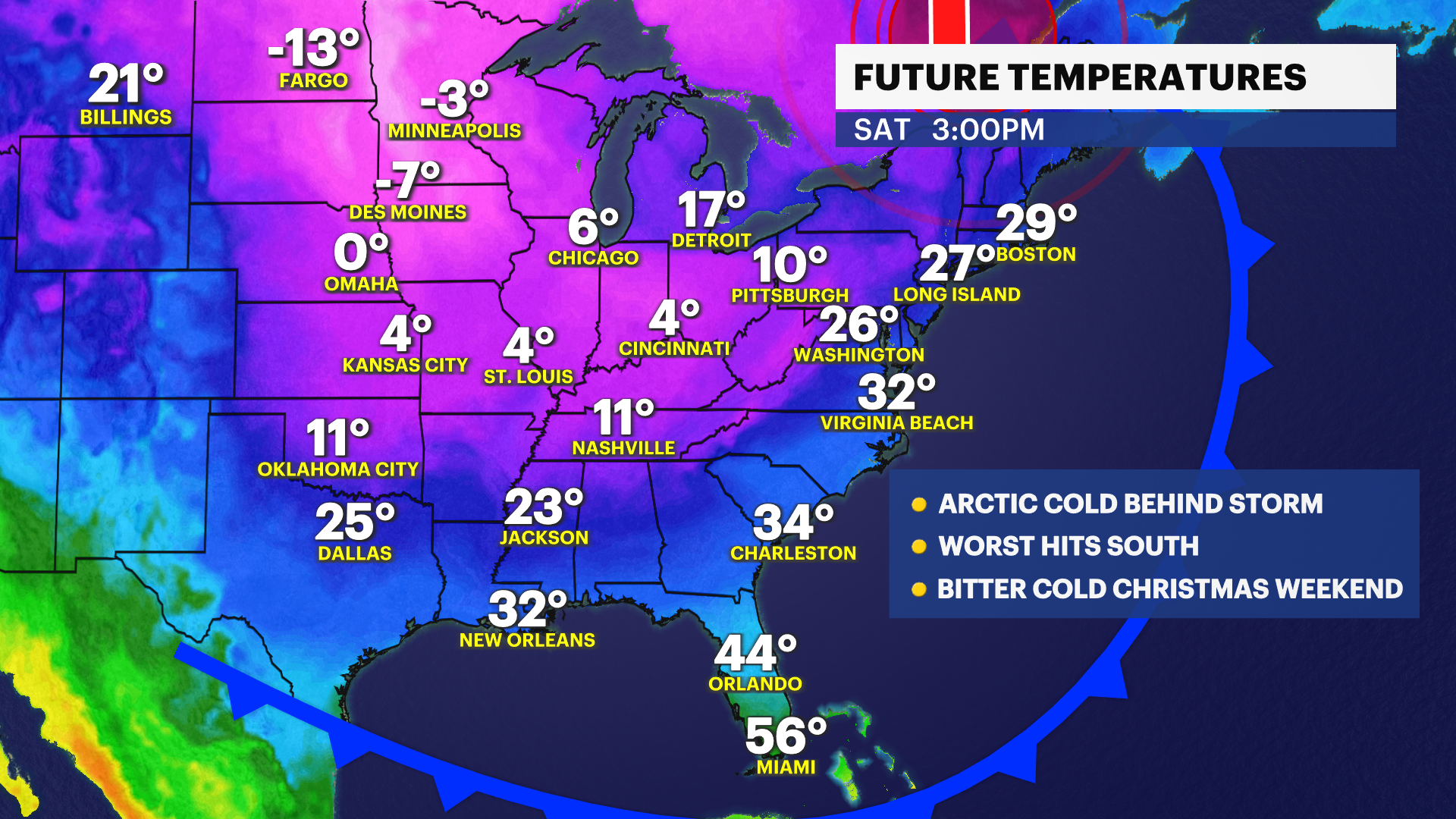
Temperatures on Christmas weekend are expected to stay well-below freezing, even during the afternoon. It will be the coldest Christmas holiday on Long Island in recent years.
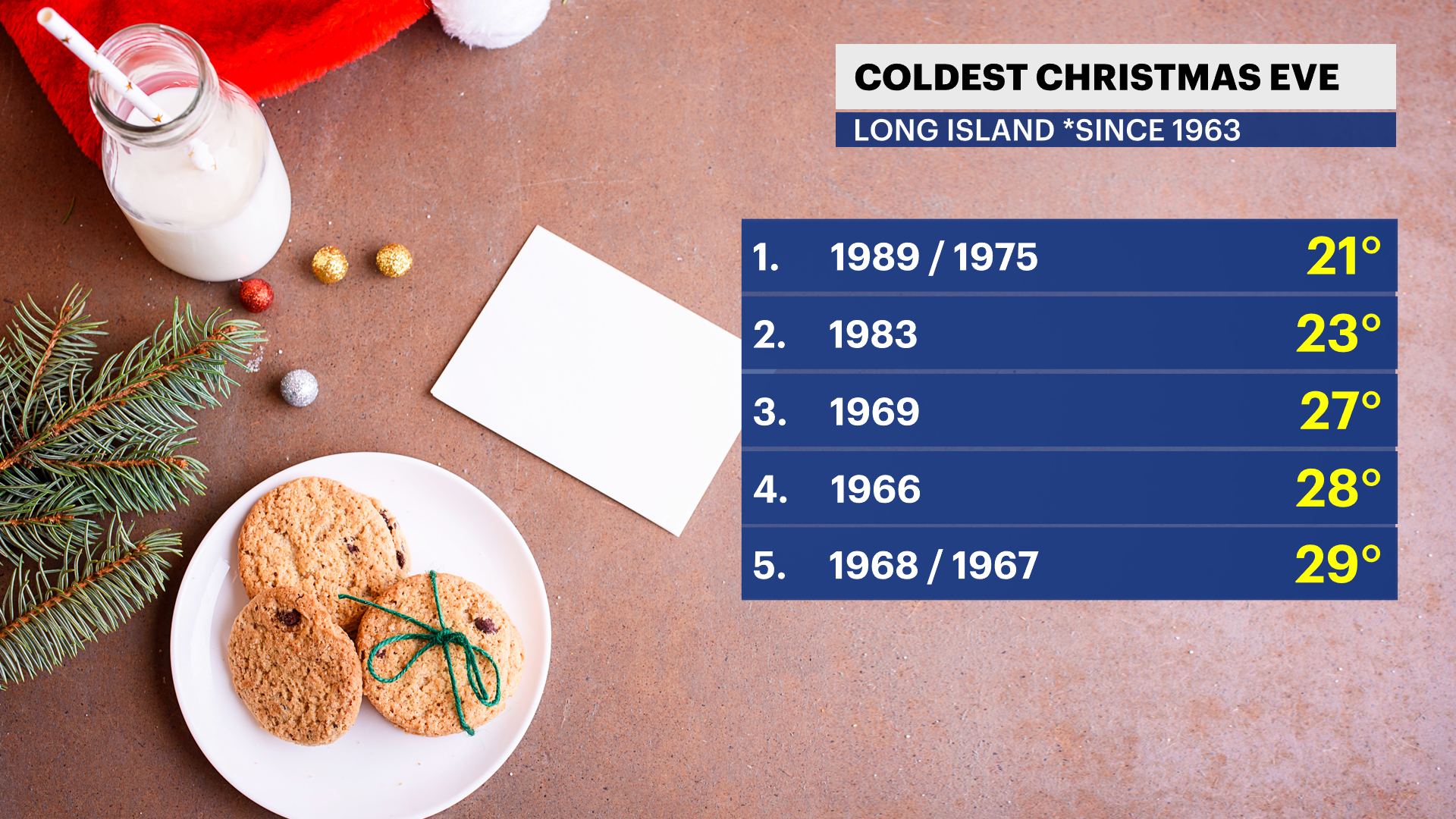
The last time Christmas Eve highs only reached 30 on Long Island was more than 20 years ago, in 1998. On Christmas Day, high temperatures on Long Island may stay in the 20s, which is the coldest since 2013 when the afternoon high was 28.
While it's not a record-breaking cold, it's a lot colder than Christmas has been the past few years. Christmas Eve 2020 was the third warmest on record and that year Long Island recorded the second warmest Christmas day on record, with a high of 59.
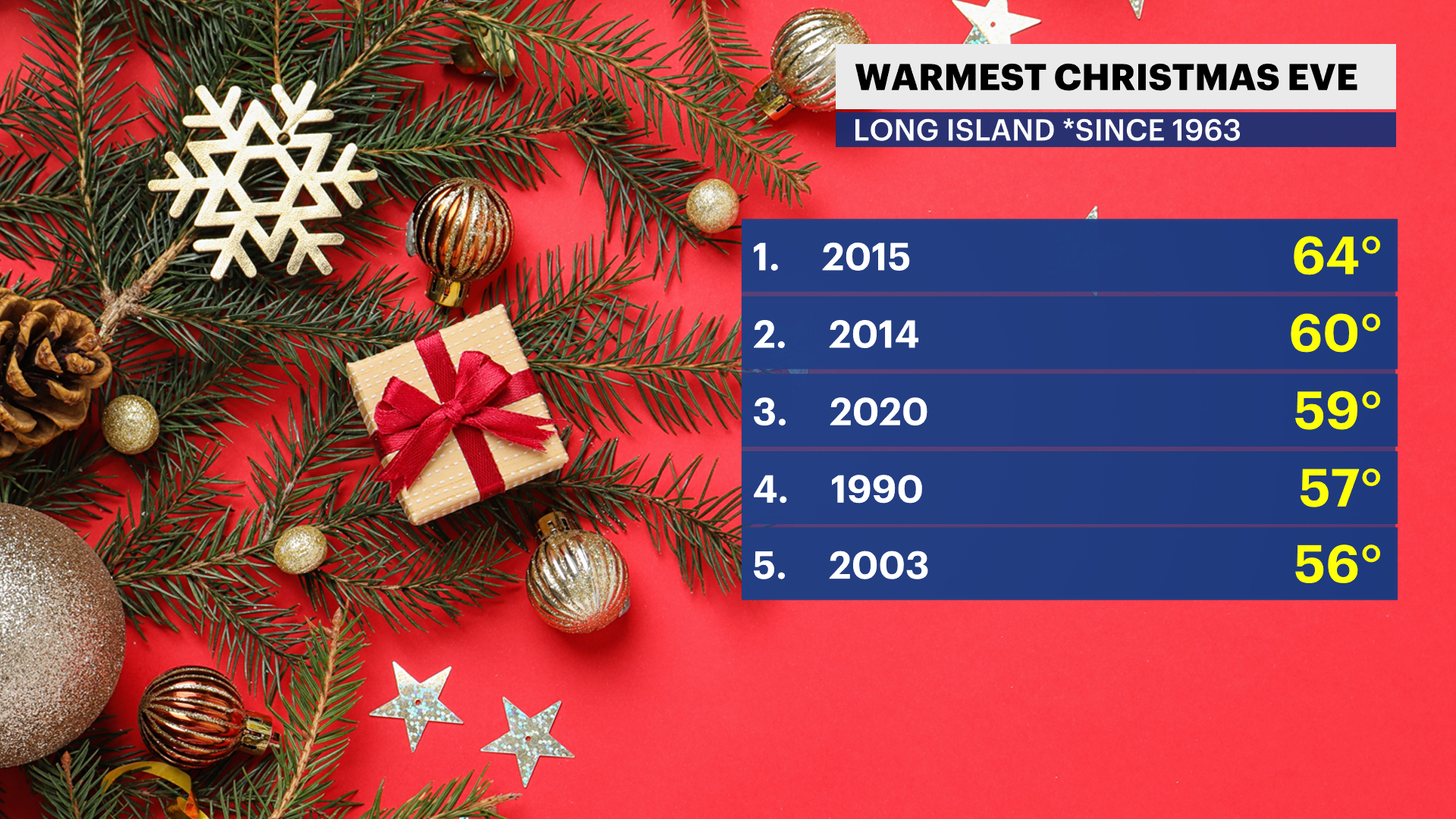
The worst of the arctic cold will dive into the southern states. Temperatures in Northern Texas will reach the teens late this week.
This cold snap likely won't break records in Florida, but it will be nearly 30 degrees colder than normal. Central Florida could see a rare Christmas freeze, and afternoon temperatures could stay in the 40s on Christmas Eve. That's the coldest cities like Orlando have seen since the record shattering winter of 1989.
More from News 12
1:12

Summer begins with record-breaking heat wave across tri-state
1:42

Long Islanders working outside seek to stay safe amid extreme heat

HEAT SAFETY: How hot does the inside of a car get in the summer?
1:29

Long Islanders working outside take extra precautions amid heat wave
1:38

Long Island schools enact cooling plans, some dismiss early for extreme heat
1:33
